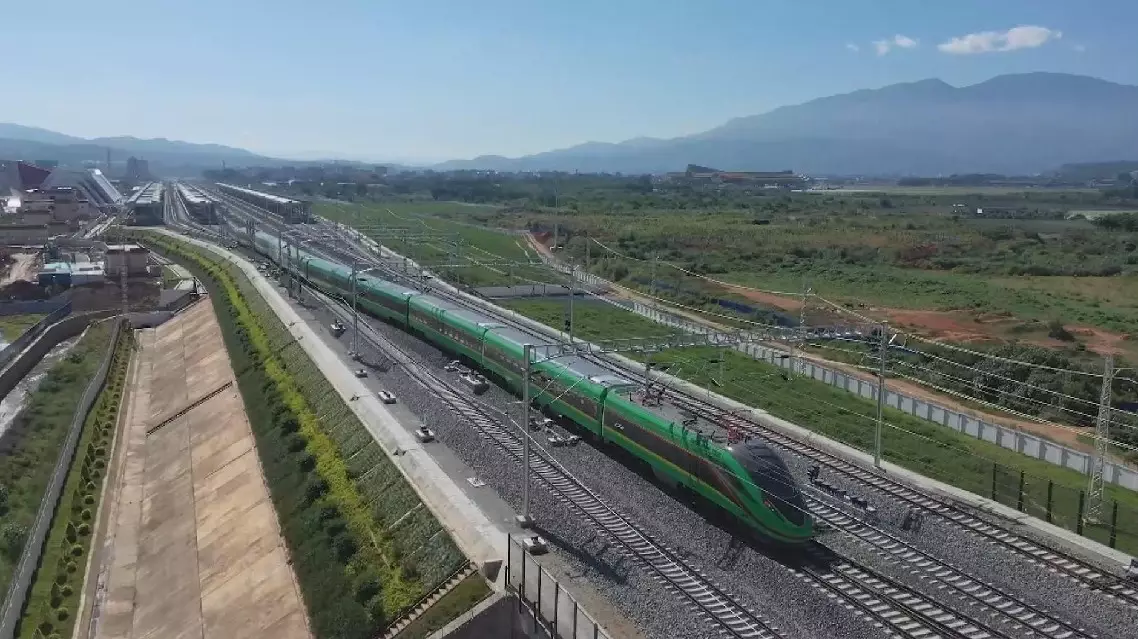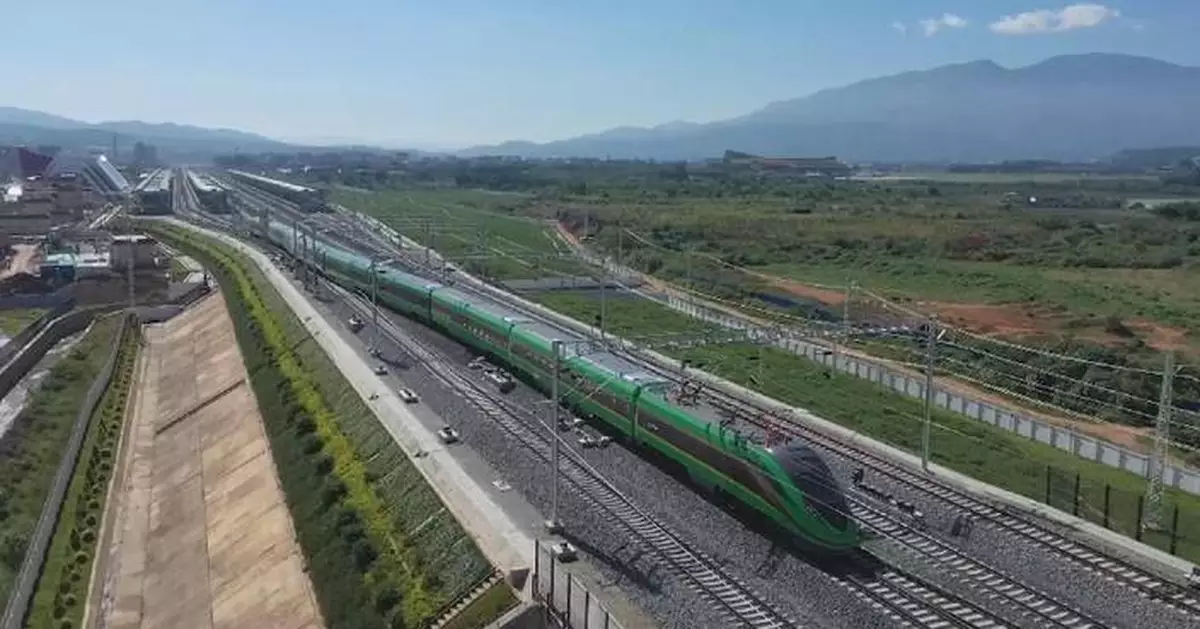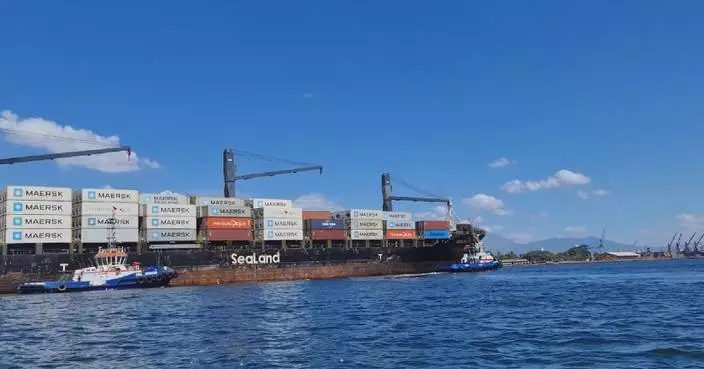The China-Laos Railway, which launched its international passenger service on April 13, 2023, has handled over 222,000 cross-border passenger trips as of Friday, said the Mohan border checkpoint in southwest China's Yunnan Province.
Over 1,000 international passenger trains running on the China-Laos Railway have served travelers from 96 countries and regions since the service was launched, according to Mohan's entry-exit border inspection station on the China-Laos border and local railway authorities.
Since the launch of its cross-border passenger service, the railway has become the preferred mode of transport for a growing number of international travelers due to its affordability, convenience and comfort.
The China-Laos Railway, a landmark project of the high-quality Belt and Road cooperation, began operation in December 2021. The 1,035-km railway connects Kunming in China with Vientiane in Laos.
To streamline customs clearance procedures, the local border inspection department has equipped its personnel with intelligent language translation devices, which can translate more than 70 languages from around the world in real time, greatly facilitating the communication between its staff and foreign passengers.
Currently, the customs clearance time of China-Laos railway international passenger trains has been shortened from the initial three hours to two hours.
The railway project is actually a section of the Kunming-Singapore Railway Project, which connects Kunming with Singapore, passing through Laos, Thailand, and Malaysia.

China-Laos Railway records over 222,000 cross-border passengers
Several French politicians have raised concerns over the United States' decision to withdraw from the Paris Agreement on climate change, saying this decision may worsen the current climate situation and intensify global tensions.
U.S. President Donald Trump signed an executive order on Monday announcing the country's intention to withdraw from the Paris Agreement. The move means the U.S. will withdraw from the climate accord for the second time, with Trump having previously exited the country from the agreement during his first term in office.
Laurent Fabius, President of the Constitutional Council of France, spoke to China Global Television Network (CGTN) about his surprise at Trump's decision, which he felt was not only unexpected but also poorly timed, given the urgent situation with the wildfires in Los Angeles.
"We clearly understand that when we see the disasters happening everywhere, if we don't fight climate change, it will only get worse. And I imagine you will be struck, as I am, by the fact that at the very moment when terrible wildfires are raging in Los Angeles, largely due to climate disruption, it is still quite surprising, to put it diplomatically, that this is the moment when President Trump decides to pull out of the Paris Agreement, contrary to what all scientists are saying. It's not a matter of goodwill or bad will; it's a reality of science, that's all," said Fabius.
Jean-Pierre Raffarin, former Prime Minister of France, echoed similar concerns, stating that the Trump administration's decision ignores the collective interests of the global community and will likely exacerbate tensions worldwide.
"I believe that withdrawing from agreements is something dangerous because we need more agreements, and if we start destroying the agreements we have built, we risk making the world even more tense. I believe that we must think about the planet and our community of shared destiny, and it is very dangerous to think that we can solve problems on our own. When we solve problems on our own, we are solving them against others. In fact, we must solve them together, and we will only address issues like climate change today by working together," he emphasized.

French politicians raise concerns over Trump's withdrawal from Paris Agreement





















































